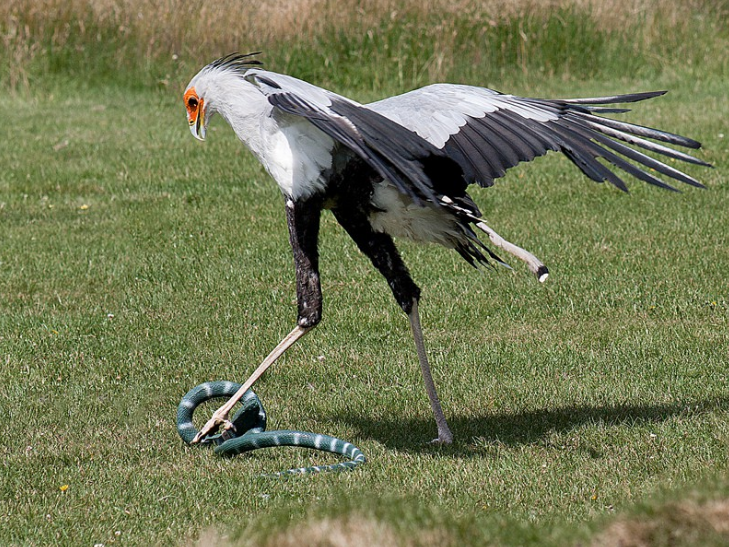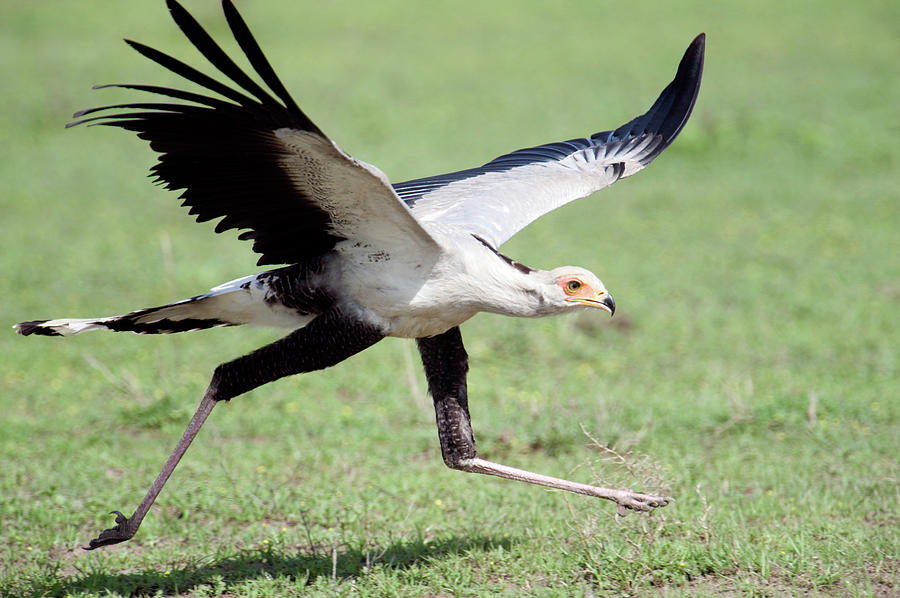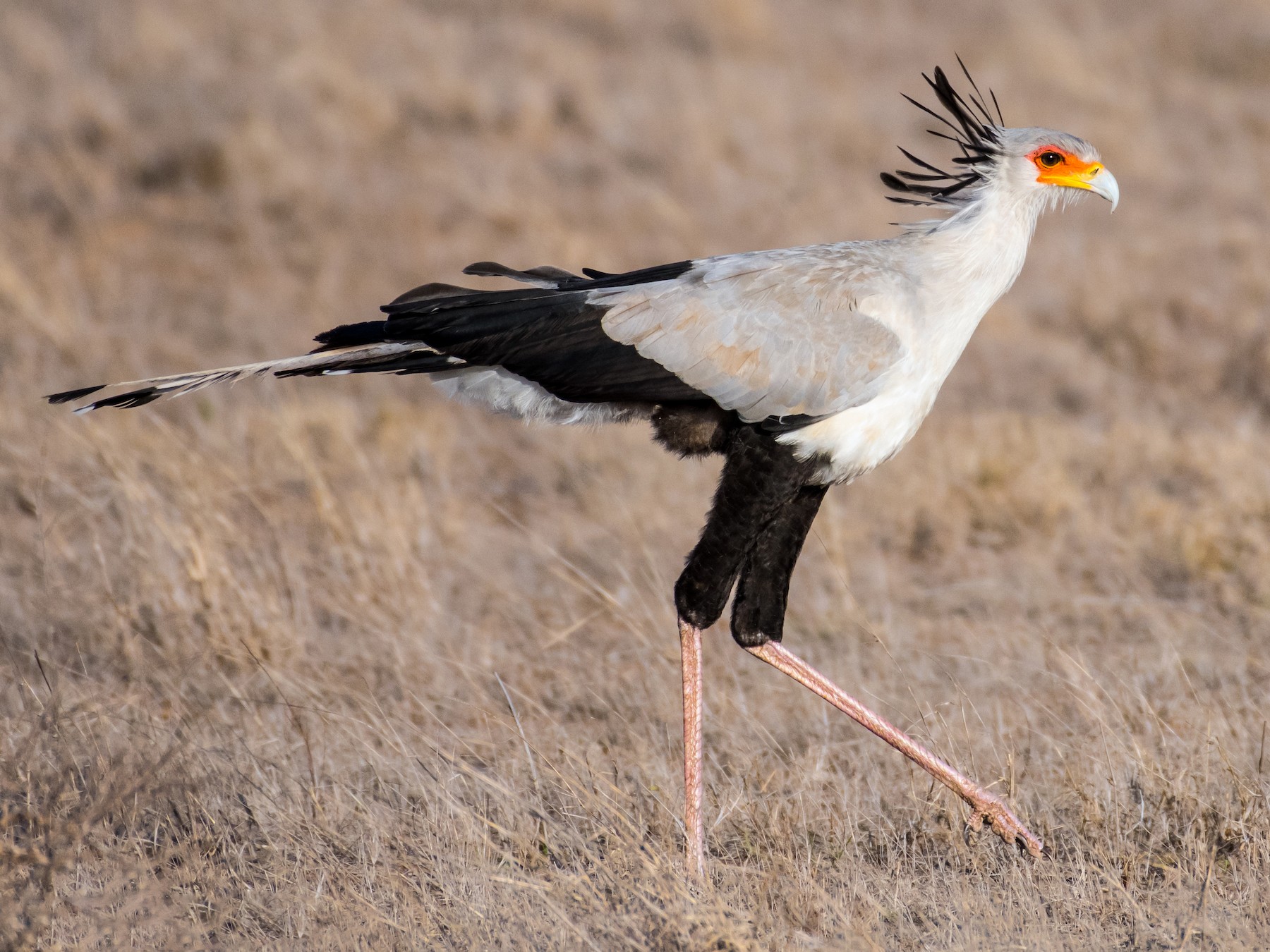So far, because of their vibrant plumage, peacocks are frequently the first birds that come to mind while discussing the beauty of birds.
But nature is vast, animals are diverse, there are still other birds out there that are also extremely beautiful, gorgeous, and even make people jealous of their beauty and one of them is Secretarybird – the golden bird in the village with long legs, curled eyelashes.
With its outstanding appearance, the name “secretary bird” is too suitable for this special bird.
Secretarybird or snake-eating kite, is a species of bird in the family Sagittariidae (scientific name Sagittarius serpentarius). In addition to the rigid, long and dry scientific names of this species, people often call it by another name, which is the secretary bird.
They called it so because of its appearance with the tip of feathers on its head like the quills or pins worn on the heads of secretaries in 18th century Europe. Besides the special name, hearing it once is remembering. Secretarybird also has super long legs and super long, shiny eyelashes that every woman must envy. This feature is proof that the name of the secretary is more suitable and memorable than any other name.
This bird is endemic to Africa, often occurring in the sparse grasslands and savannas of sub-Saharan Africa. It can be easily recognized thanks to its large body somewhat resembling an eagle or a falcon. An average secretary bird is about 1.3m tall, weighs 3.3kg, is about 112cm to 150cm long, has a wingspan of 191cm to 225cm. Because of that feature, it is larger than any diurnal bird of prey.

Although the momentum looks a bit “feminine”, it is a notorious killer in nature. It hunts by walking around looking for prey in the grasslands, when needed, it can still speed up to catch prey. The main food of secretary birds is small mammals, reptiles, birds, insects. And true to its snake-eating kite, it cannot say no to snakes, even poisonous snakes are not its opponents.

When meeting prey, it will chase using its beak and legs to attack the opponent to death, in addition, the snake-eating kite will spread its wings and raise the feathers behind its head to scare the prey. Some studies suggest that the terror birds that lived 5 million years ago in the age of the dinosaurs also had similar hunting tactics.

With its long legs, the secretary bird is one of the birds with the strongest kick in the animal world, its kick has a “gentle” force of about 195 Newtons, 5-6 times stronger than the body weight. its own body. It hits so fast that the entire action happens within a tenth of our blink.

Not only beautiful, strong, and powerful, the secretary bird is equally intelligent, when hunting it knows how to take advantage of the nearby fire, scavenging everywhere to burn, making it impossible for small prey to escape the fire.

Secretary birds can mate at any time of the year, depending on the amount of food available at that time. The way to flirt with a mate of the species is very simple, male and female birds will spread their wings and chase each other across the grasslands. The couple will build their happy home together, they often take branches, fur, leaves, grass to make a large nest about 2.4m and will use for many years.

After hatching, the chicks will be well taken care of by their parents, unlike many other birds of prey, secretary birds are super confident parents who raise their children very kindly, they will teach their children to come. Only when you know how to hunt, fly and use your legs effectively. Young birds will take about 12 weeks to have enough wings to confidently go out to survive without parents.

Because of its speciality, the secretary bird was honored to appear on the logo and national flag of Sudan as a symbol of victory and on the military insignia of South Africa, symbolizing the protection of the country. guard. Since 1968, the species has been protected by the African Convention for the Conservation of Nature and Natural Resources and more and more practical activities from many zoos contribute to raising awareness of the importance of wildlife. species.
Source: https://ghiennaunuong.com










